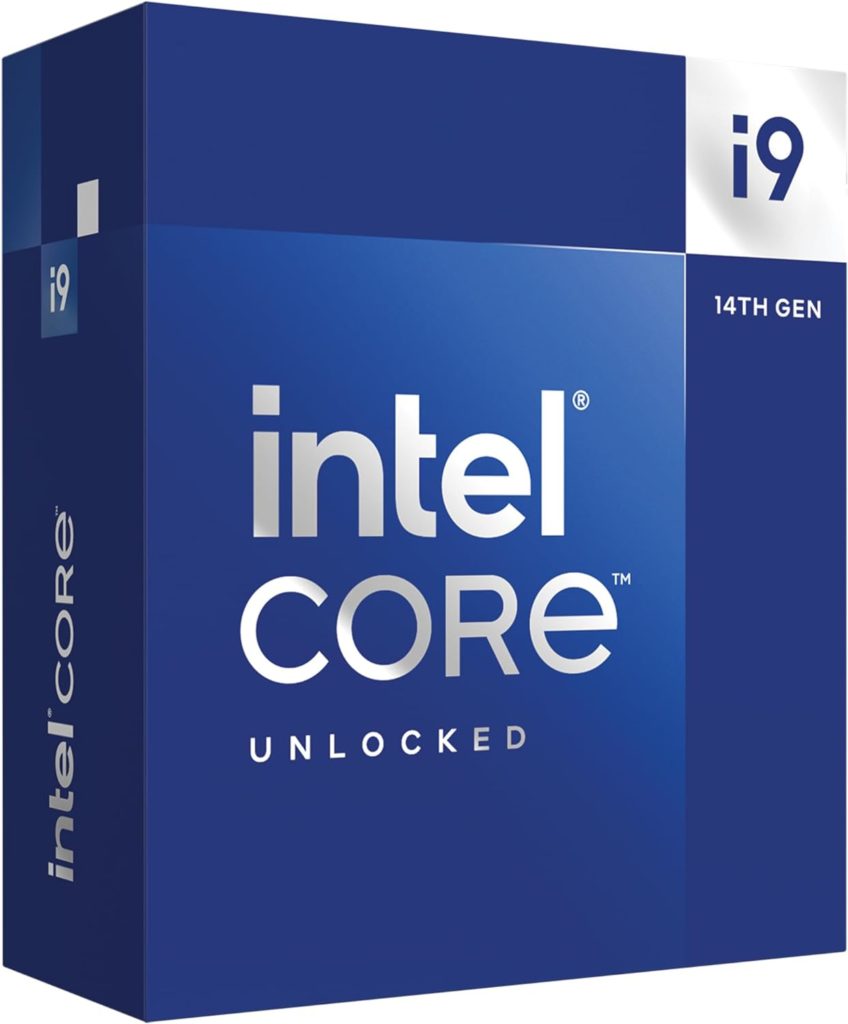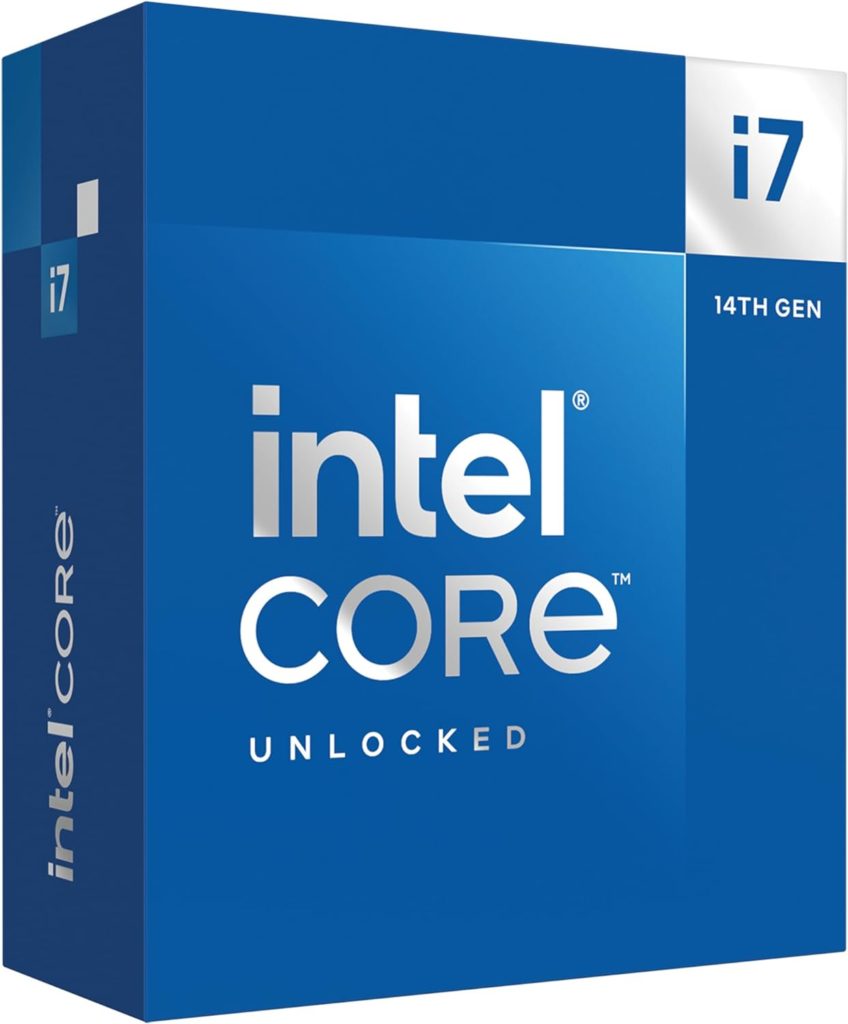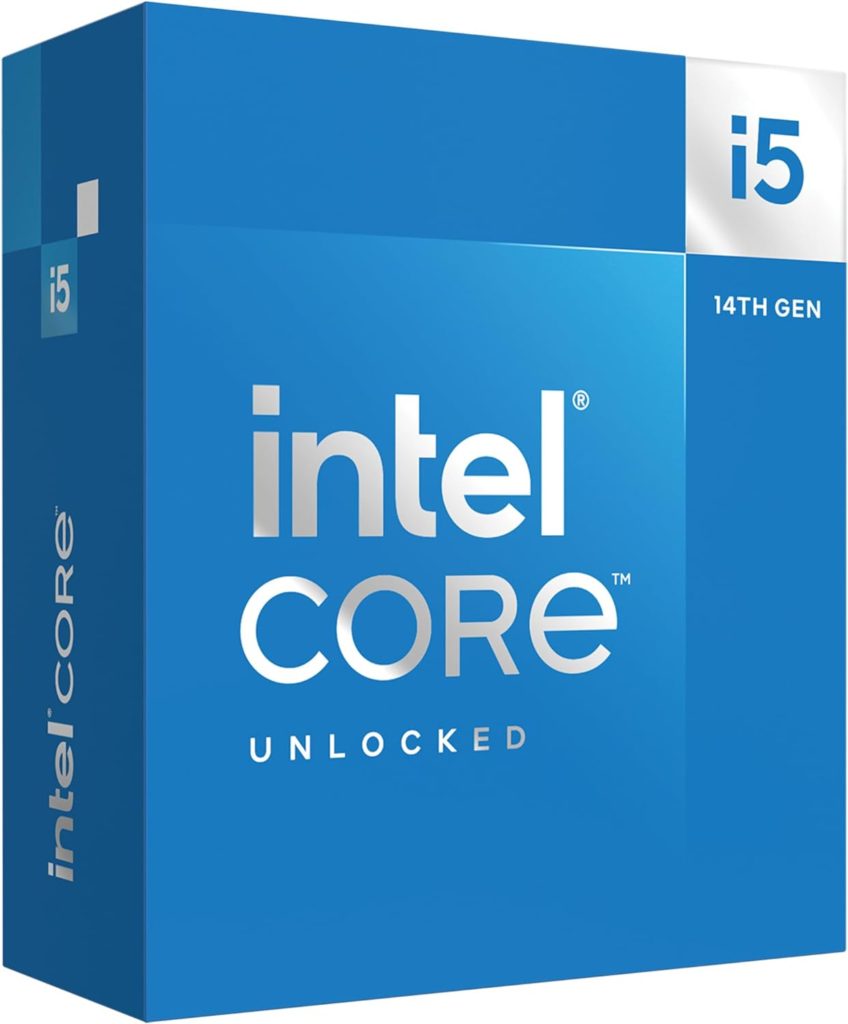Intel’s Core 14 Generation i9 14900K vs. 14700K vs. 14600K
The competition in the world of CPUs is heating up once again as we enter the battle of Intel’s latest processors: the Core i9-14900K, Core i7-14700K, and Core i5-14600K. These processors represent different tiers of performance and capabilities, and choosing the right one can significantly impact your computing experience.
In this comparison, we will dive deep into the specifications, features, and performance of these processors to help you make an informed decision and find the perfect CPU for your specific needs and preferences. Whether you’re a professional content creator, a hardcore gamer, or simply looking for a powerful everyday computing solution, this showdown will provide valuable insights to guide your choice.
Intel’s 14 Generation Raptor Lake Refresh: What is New?
Intel’s 14th generation Raptor Lake Refresh CPUs have arrived with a promise of enhanced performance and capabilities. This new lineup comprises six chips, divided into three performance tiers, following the recent trend in Intel CPU launches.
What sets these processors apart is their unlocked nature, allowing users to push their performance limits, and they come at price points that align with their 13th-generation predecessors.
For gamers and enthusiasts, this continuity in pricing makes them an attractive choice. Furthermore, the 14th gen CPUs maintain compatibility with the LGA 1700 socket, consistent with the 12th and 13th generation, which simplifies upgrades for existing users.
However, it’s important to note that these new processors come with higher thermal demands due to their increased clock speeds and rely on the same Raptor Lake cores as their 13th-generation counterparts. This means that users of 12th and 13th gen CPUs might not be the primary target audience, as the thermal requirements and core architecture remain similar.
When delving into the specifications, we find that all three processors in this lineup have received a boost in their turbo boost clocks for the performance cores, gaining an additional 200 MHz, while the efficiency cores, based on Intel’s Gracemont architecture, have seen a bump of 100 MHz each.
While core counts have largely remained consistent, the Intel Core i7-14700K and KF have welcomed an increase in efficiency cores, making them 28-thread processors, bringing them closer to their high-end counterparts.
In summary, the 14th generation “Raptor Lake Refresh” CPUs represent a refinement rather than a revolutionary change. They fine-tune the 13th-generation CPU cores, boosting clock speeds and demanding more in terms of thermal and power requirements.
These CPUs are already available at various retailers, offering an enticing proposition for users, especially when considering their competitive price points, often making them superior alternatives to existing Intel CPUs.
As the CPU landscape continues to evolve, these processors aim to cater to the diverse needs of users, from gamers seeking top-tier performance to enthusiasts looking for value and versatility.
Which Intel 14th Generation CPU Should You Get?
Intel Core i9 14900K 24-Core, 32-Thread CPU

Introducing the Intel Core i9 14900K 24-Core, 32-Thread CPU, the pinnacle of Intel’s 14th generation processors. This powerhouse offers an unprecedented boost clock of 6 GHz, setting a new standard for consumer-grade CPUs.
Succeeding the limited-release 13900KS, it establishes itself as the first mainstream CPU to reach this remarkable clock speed. With 24 cores (8P + 16E) and 32 threads, this CPU is engineered for unparalleled performance. Built on the Raptor Lake (Refresh) architecture and utilizing Intel’s advanced 7nm process, it strikes a perfect balance between power and efficiency.
Whether you’re a gamer, content creator, or enthusiast, the Intel Core i9 14900K is designed to deliver exceptional computing power. Explore new horizons with PCIe 4.0/5.0 support and experience stunning visuals with Intel UHD Graphics 770. Embrace the future of computing with a TDP of 253W, where innovation knows no bounds.
If you’re eager to explore the performance and capabilities of the Intel Core i9-14900K, our comprehensive “Intel Core i9-14900K Review” provides an in-depth analysis of this 14th Gen 24-Core (8P+16E) desktop processor. From its impressive specifications to real-world testing, our review covers all aspects, ensuring you make an informed decision when considering this powerhouse for your desktop setup. Uncover the details, benchmarks, and insights in our thorough examination of the Intel Core i9-14900K processor.
Specifications
| Brand | Intel |
| CPU Model | Core i9 14900K |
| CPU Socket | LGA 1700 |
| Cores | 24 (8P + 16E) |
| Threads | 32 |
| Architecture | Raptor Lake (Refresh) |
| Process | Intel 7 (10 nm) |
| Base Clock Speed | 3.2 GHz |
| Boost Clock Speed | 6 GHz |
| Cache | 32MB L2 + 36MB L3 Cache |
| PCIe | PCI-E 4.0/5.0 supported |
| Graphics | Intel UHD Graphics 770 |
| TDP | 253 W |
Pros
- Represents Intel’s fastest consumer-grade CPU in the current lineup.
- Maintains the same price point as the Intel Core i9 13900K.
- Achieves remarkable single-core performance, reaching up to 6 GHz.
Cons
- Falls slightly behind AMD’s Ryzen 7000 X3D-based CPUs in gaming performance.
Intel Core i7 14700K 20-Core, 28-Thread CPU

The Intel Core i7 14700K and its iGPU-less counterpart, the Intel Core i7 14700KF, represent a notable shift in the realm of high-end mainstream CPUs. These processors bring a compelling blend of enhanced clock speeds, additional efficiency cores, and an overall improved value proposition, making them a viable alternative to their Core i9 counterparts. Made for high-end gamers and power users seeking both gaming prowess and productivity capabilities, these CPUs bridge the gap between value and performance, inching closer to the Core i9 tier while maintaining an attractive price point.
Among the trio of processors, the Intel Core i7 14700K experiences the most significant upgrade. With the addition of 4 efficiency cores (and consequently, 4 threads), it stands out as a compelling choice. Its clock speeds receive a boost in line with its siblings, but it’s worth noting that while it may still trail behind AMD’s Ryzen 7 7800X3D in certain gaming scenarios, it excels in others, such as Starfield, where Intel’s performance bias comes into play.
Utilizing the LGA 1700 socket, the Intel Core i7 14700K seamlessly integrates into existing setups, making it a straightforward replacement for tasks and gaming requirements, thanks to the added efficiency cores and enhanced clock speeds. However, these additional cores come with increased power and thermal demands, nudging it closer to the Core i9 performance territory.
It’s essential to consider that the iGPU-less variant, the Intel Core i7 14700KF, presents a compelling option for gamers and enthusiasts already equipped with discrete graphics solutions. Not only does it deliver identical performance, but it also offers a cost-saving advantage, currently available at a sub $25 discount. This makes it an attractive choice, allowing users to allocate their budget towards other components that contribute to an enthusiast-grade hardware setup.
While these high-end mainstream CPUs provide remarkable value, users should be prepared to invest in more robust cooling solutions as they approach the thermal demands reminiscent of the Core i9 series in this generation. Ultimately, the Intel Core i7 14700K and i7 14700KF offer a well-balanced blend of performance, affordability, and versatility, catering to the evolving needs of modern gamers and power users.
Specifications
| Brand | Intel |
| CPU Model | Core i7 14700K |
| CPU Socket | LGA 1700 |
| Cores | 20 (8P + 12E Cores) |
| Threads | 28 |
| Architecture | Rocket Lake Refresh |
| Process | Intel 7 (10 nm) |
| Base Clock Speed | 3.4 GHz |
| Boost Clock Speed | 5.6 GHz |
| Cache | 28MB L2 + 33MB L3 |
| RAM | Upto 192GB DDR5 RAM |
| PCIe | PCI-E 4.0/5.0 Support |
| Graphics | Yes, Intel UHD 770 |
| Power Draw | 253W (Turbo) |
Pros
- Out-of-the-box performance significantly surpasses that of the 13700K.
- Maintains a competitive launch price similar to the Intel Core i7 14700K.
- Features an impressive 200 MHz boost in clock speed compared to its predecessor.
- Incorporates an additional 4 efficiency cores, enhancing overall capabilities.
Cons
- Trails behind AMD’s more affordable 7800X3D in gaming performance.
- May not offer a compelling upgrade path for owners of previous-generation Intel Core i9 CPUs.
Intel Core i5 14600K 14-Core, 20-Thread CPU

The Intel Core i5 14600K and KF CPUs represent a compelling value proposition, catering to the needs of mid-range PC enthusiasts and gamers seeking cost-effective upgrades. Building upon the success of the highly regarded 13600K and 13600KF CPUs, these processors offer improved boost clock speeds while maintaining reasonable power and thermal demands, distinguishing them from their higher-end counterparts.
While the budget-friendly Intel Core i5 13600K garnered praise for its impressive gaming performance and affordability, its successor, the Intel Core i5 14600K 14-Core, 20-Thread CPU, builds upon this foundation by delivering slightly higher clock speeds while retaining the same attractive price point as its predecessor. Notably, the i5 14600K boasts more manageable power consumption and cooling requirements, making it an ideal choice for mid-range PC builds targeted at system builders, power users, and gamers alike. Furthermore, the i5 14600K is available at various retailers, ensuring accessibility to interested buyers.
For those who do not require integrated graphics, the Intel Core i5 14600KF 14-Core, 20-Thread CPU offers the same performance gains while providing a modest price reduction. Intel’s consistent $25 discount on KF SKUs across its 14th generation lineup further enhances the appeal of the 14600KF, particularly when considering its favorable pricing compared to its higher-tier counterparts, making it an attractive option for budget-conscious consumers.
Specifications
| Brand | Intel |
| CPU Model | Core i5 14600K |
| CPU Socket | LGA 1700 |
| Cores | 14 (6P + 8E Cores) |
| Threads | 20 |
| Architecture | Raptor Lake Refresh |
| Process | Intel 7 (10 nm) |
| Base Clock Speed | 3.5 GHz |
| Boost Clock Speed | 5.3 GHz |
| Cache | 20MB L2 + 24MB L3 |
| RAM | Upto 192GB DDR5 RAM |
| PCIe | PCI-E 4.0/5.0 support |
| Graphics | Intel UHD 770 |
| Power Draw | 181W (Turbo) |
Pros
- Provides increased clock speeds within the same price range compared to its predecessors.
- Compatibility with both 12th and 13th generation Intel motherboards enhances versatility.
- Delivers excellent value for gaming enthusiasts, outperforming higher-end alternatives in terms of cost-effectiveness.
Cons
- Tweaked-out 13600K
Bottom Line
Intel’s 14th generation CPUs may appear as a refreshed version of their 13th generation counterparts, but they serve as a strategic move to maintain market presence and offer improved performance. This approach benefits gamers and enthusiasts seeking faster hardware while ensuring competitive pricing and enhanced value for users upgrading from older Intel CPUs.